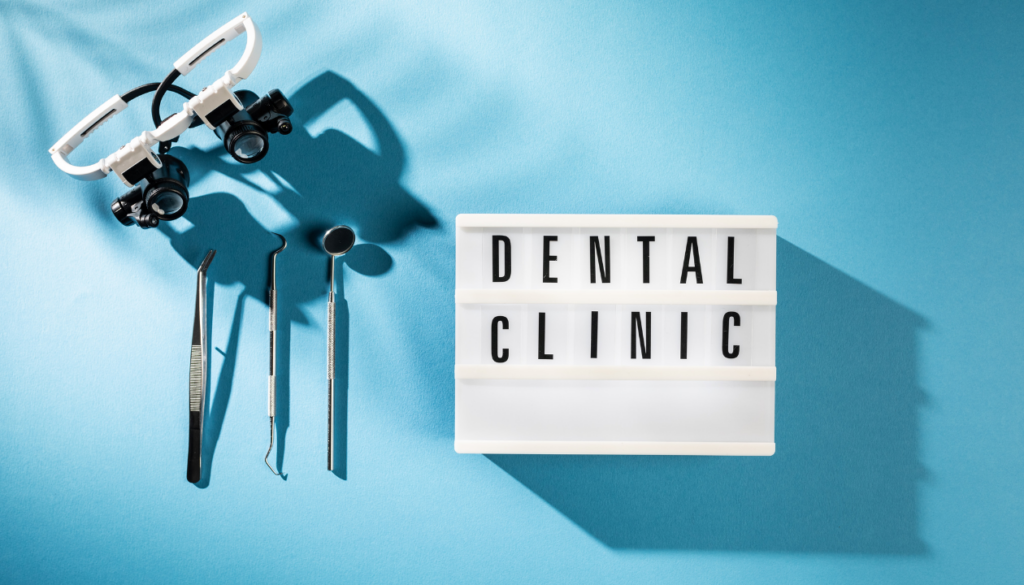Dental emergencies can strike unexpectedly, often bringing pain and anxiety along with them. Knowing when to seek immediate care is crucial for your oral health and overall well-being.
It’s not always easy to identify a dental emergency, but recognizing the signs can help you get the treatment you need before complications arise.
Ignoring symptoms can lead to irreversible damage and chronic pain. For instance, severe pain, uncontrolled bleeding, or swelling may indicate a serious issue that requires urgent attention.
In this article, you’ll discover key signs that signal it’s time to consult an emergency dentist, ensuring you address potential problems before they escalate. Don’t wait until it’s too late; understanding these warning signs can make all the difference in preserving your smile.
Understanding Emergency Dental Care
Emergency dental care addresses critical oral health issues requiring immediate attention. Recognizing the signs of a dental emergency can significantly impact your overall well-being.
A dental emergency includes situations that demand urgent intervention to alleviate severe pain or prevent further complications.
Importance of Prompt Treatment
Seeking prompt dental care ensures efficient management of emergencies, reducing the risk of complications. Timeliness directly influences treatment outcomes.
For instance, addressing a knocked-out tooth within 30 minutes to an hour increases the chances of successful reattachment.
Moreover, timely treatment helps manage pain and prevents the escalation of issues that may require more extensive and costly intervention later. When experiencing symptoms like severe pain or bleeding, prioritizing emergency dental care leads to quicker recovery and enhances oral health.
Understanding the urgency of these situations assists in making informed decisions for your dental well-being.
Common Signs You Need Emergency Dental Care
Recognizing the signs that indicate a dental emergency is crucial for maintaining your oral health. Prompt attention to these symptoms can prevent further complications and permanent damage.
Severe Toothache
A severe, throbbing toothache that doesn’t subside with over-the-counter pain relievers signifies a dental emergency. This intense pain often indicates an infection, abscess, or tooth fracture.
If accompanied by fever and swollen lymph nodes, it’s essential to seek immediate dental care. Lingering pain that disrupts sleep or daily activities warrants urgent evaluation.
Bleeding Gums
Uncontrolled bleeding from the gums requires immediate attention. Whether due to trauma or other factors, uncontrolled bleeding may indicate a serious injury or advanced gum disease.
If swelling and bleeding occur together, especially with signs of an advanced infection, prompt dental care becomes critical. Bleeding that persists after applying pressure for 15 to 20 minutes signals a need for urgent evaluation.
Swelling or Inflammation
Facial swelling or inflammation within the mouth often indicates a dental emergency. This might develop from an abscess or severe infection, causing discomfort that can spread beyond the original site.
Immediate action is necessary to address potential infections and prevent serious complications.
Knocked-Out or Loose Tooth
If you’ve experienced a knocked-out or loose tooth due to trauma, seek emergency treatment immediately. Quick evaluation by a dentist can significantly increase the chances of saving the tooth.
For a loose tooth, intervention is necessary to identify the underlying cause and prevent further complications, such as infection or tooth loss.
Cracked or Broken Tooth
Cracked or broken teeth require urgent dental attention. If you notice a chipped, fractured, or partially broken tooth, visiting a dentist promptly helps to assess the damage and minimize the risk of infection.
Delaying treatment can result in worsening conditions, potentially leading to extraction.
What To Do In Case of a Dental Emergency
Dental emergencies require swift action and proper management. Knowing how to respond can protect your oral health and minimize damage.
Initial Self-Care Tips
- Rinse Your Mouth: Use warm water to rinse your mouth gently. This helps clean the area and reduce discomfort.
- Apply Ice: For swelling or pain, apply ice wrapped in a cloth to the affected area for 15-20 minutes. This numbs the pain and reduces inflammation.
- Control Bleeding: If bleeding occurs, apply gentle pressure with a clean cloth or gauze. If bleeding persists after 10 minutes, seek help.
- Stay Calm: Keeping calm helps you think clearly. Anxiety can worsen the situation and discomfort.
- Avoid Specific Foods: Steer clear of hard, crunchy, or sticky foods until professional care is received. These foods can exacerbate damage.
When to Seek Professional Help
- Pain Persists: If severe pain continues despite self-care, it’s essential to seek dental help immediately. Persistent pain may indicate a serious dental issue.
- Persistent Bleeding: If bleeding doesn’t stop within 10 minutes of applying pressure, professional care is necessary. Uncontrolled bleeding can signal a more severe problem.
- Tooth Loss: If a tooth is knocked out, seek dental assistance immediately. Reattaching a tooth is most successful if done within 30 minutes to an hour.
- Swelling or Infection: If swelling or signs of infection, like fever, develop, contact your dentist promptly. Infection can spread and lead to more serious health concerns.
- Chipped or Broken Teeth: If teeth are significantly chipped or broken and causing discomfort, professional evaluation is crucial to restore the tooth’s functionality.
By following these steps, you can effectively manage a dental emergency and ensure you receive the necessary care as promptly as possible.
The Benefits of Seeking Immediate Dental Care
Seeking immediate dental care offers multiple advantages that can enhance your overall oral health. Addressing issues promptly helps prevent complications that may arise from untreated dental problems.
Preventing Further Complications
Immediate dental care prevents minor issues from escalating into severe problems. For example, a persistent toothache may indicate an infection or abscess.
If treated early, you can avoid potential tooth loss or the need for extensive procedures such as root canals or extractions. Treating knocked-out teeth within 30 minutes to an hour significantly increases the chance of successful reattachment.
Quick intervention safeguards your teeth, gums, and overall health, minimizing the risk of severe complications.
Cost-Efficiency of Timely Treatment
Seeking prompt dental care can save substantial costs in the long run. Untreated dental issues often lead to more complex and expensive procedures.
For instance, a small cavity that remains untreated may develop into a root canal, which involves greater expenses and prolonged treatment time. Addressing dental emergencies quickly can lead to less invasive treatments, preserving your existing dental work while reducing long-term expenses associated with more extensive care.
Conclusion
Recognizing the signs of a dental emergency can make all the difference in preserving your oral health. When you experience severe pain swelling or uncontrolled bleeding it’s crucial to seek immediate care.
Delaying treatment can lead to complications that may affect your smile and overall well-being.
By staying informed about the symptoms that require urgent attention you empower yourself to take action swiftly. Remember that timely intervention not only enhances treatment outcomes but can also save you from more extensive procedures down the line.
Your dental health is worth prioritizing so don’t hesitate to reach out for help when you need it most.
Frequently Asked Questions
What is considered a dental emergency?
A dental emergency involves conditions that require urgent care to prevent serious complications. Examples include severe tooth pain, knocked-out teeth, dental infections, uncontrolled bleeding, and significantly chipped or broken teeth. Recognizing these situations early is crucial for timely treatment.
How do I know if I need to seek emergency dental care?
You should seek immediate dental care if you experience severe toothaches that persist despite pain relievers, uncontrolled bleeding from the gums, swelling in the face, or a knocked-out tooth. Timely intervention can prevent further complications.
What should I do if I have a knocked-out tooth?
If a tooth is knocked out, pick it up by the crown, rinse off any dirt without scrubbing, and gently place it back into the socket if possible. If not, store it in milk or saline and seek dental care immediately, ideally within 30 minutes to an hour.
Can I handle dental emergencies at home?
While some self-care measures can help manage discomfort, such as rinsing with warm water or applying ice to reduce swelling, it’s essential to seek professional dental care as soon as possible for effective treatment and to avoid complications.
What are the signs of a dental infection?
Signs of a dental infection include persistent tooth pain, facial swelling, fever, or a bad taste in the mouth. If you notice these symptoms, seek immediate dental assistance to prevent the infection from spreading.
Emergency Dental Care at Forestwood Dental – Don’t Wait, Act Now
At Forestwood Dental, your oral health is our top priority. If you’re experiencing a dental emergency, don’t delay—seek immediate care to prevent long-term damage.
Our expert team is here to provide fast and effective treatment to relieve your pain and restore your smile. Book an appointment today to experience the benefits of prompt, professional care. Don’t wait until it’s too late—contact us now!

